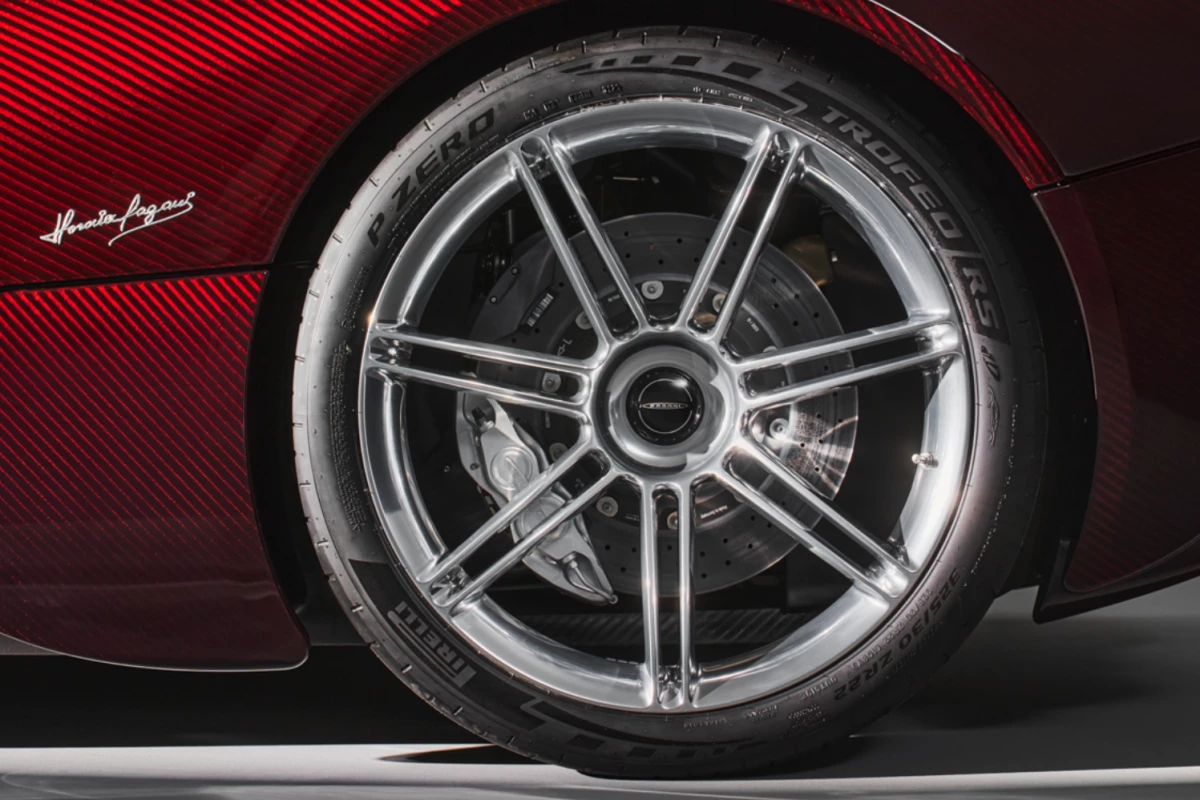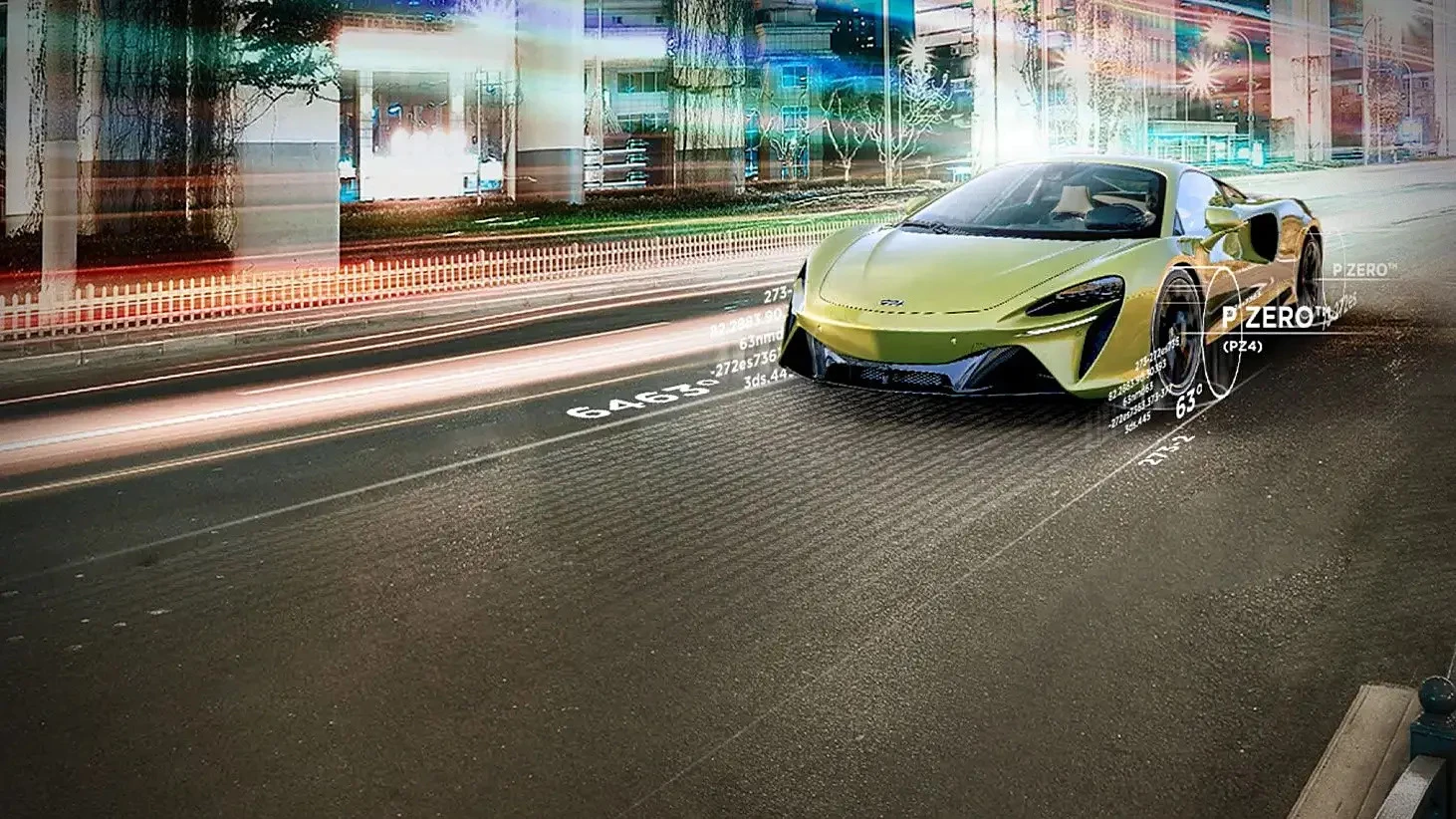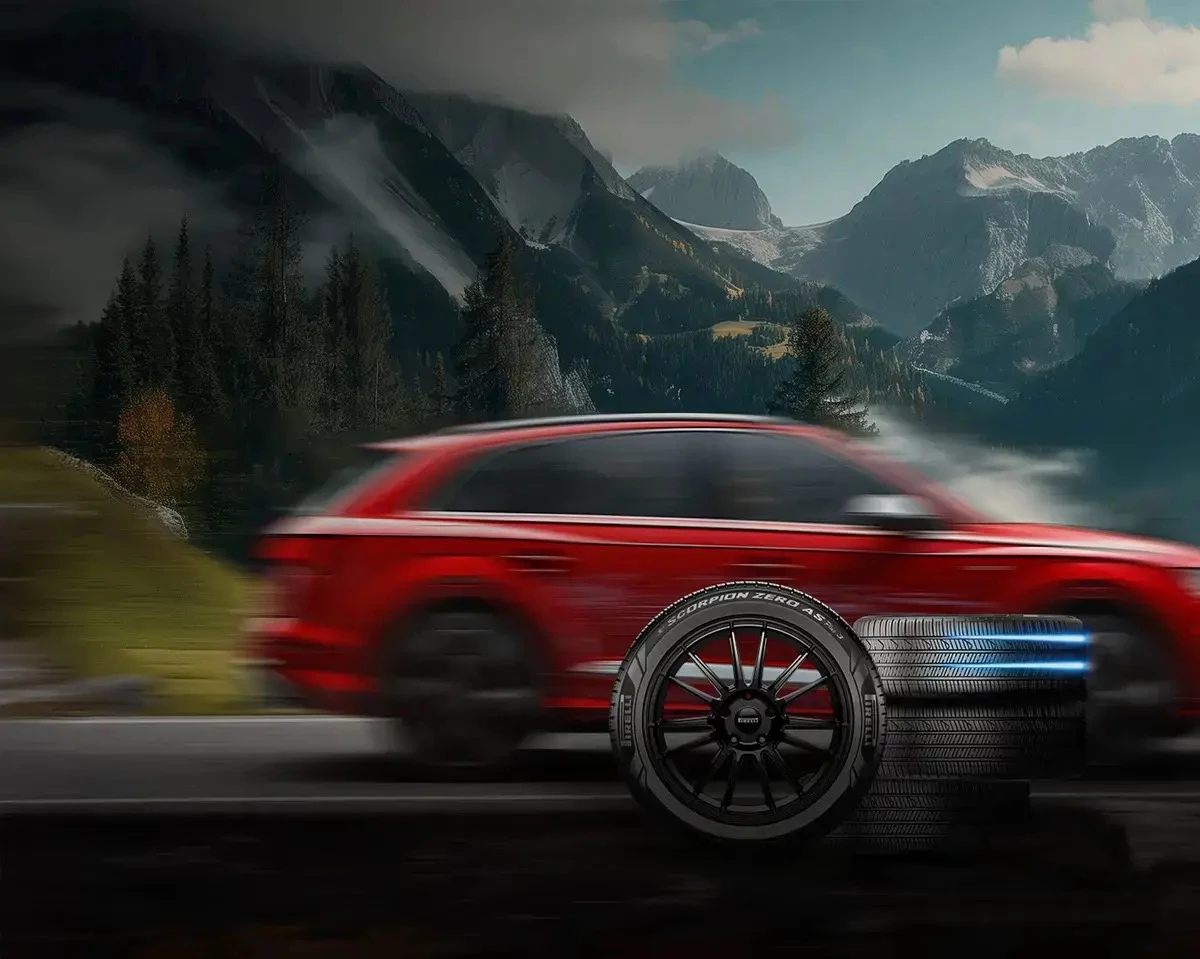Pirelli and Bosch have signed a joint development agreement to create a software-driven "intelligent tire" system that will combine Bosch's hardware and software know-how with Pirelli's tire-integrated sensors tech.
We’ve seen many a concept tire over the years, from Michelin and GM’s airless tires to the shape-shifting wheels from Korea that can deform in response to rough terrain. While these are innovative ideas, Pirelli and Bosch’s Cyber Tyre seems more likely to be hitting store shelves in the not-too-distant future. First announced as a concept in 2019, it essentially uses tire data to assist in fine-tuning software-controlled car features to suit various driving conditions.
Each tire is equipped with an advanced integrated sensor that connects to the car’s electronics, enabling the vehicle to adjust its setup based on the fitted tire. The primary function of the tech will be to optimize ABS braking performance and enhance stability and traction control – all in real time.
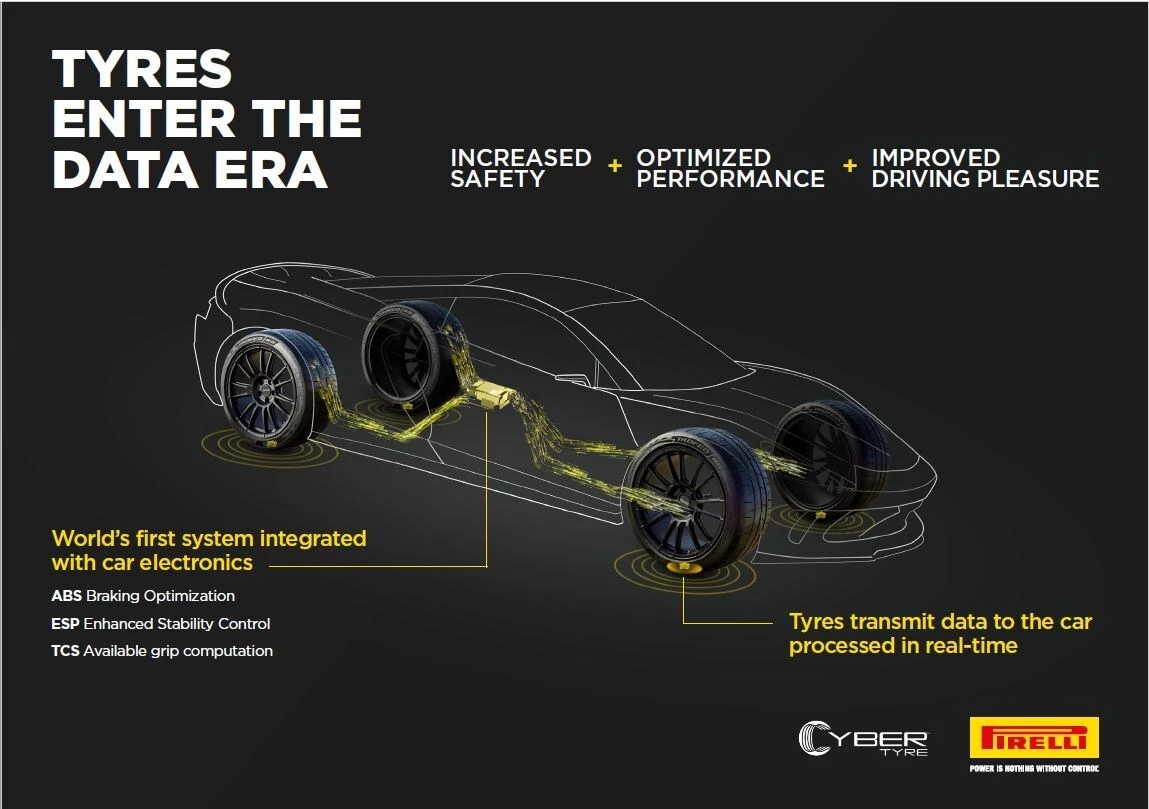
For an initial joint project with Pagani, Bosch developed an ESP (Electronic Stability Program) application specially tailored to a the Pirelli P Zero Trofeo RS tires on an 852-horsepower Pagani Utopia Roadster, which comes with a twin-turbocharged 6.0-liter V-12 engine. The tires have built-in sensors that link to the car's ABS and traction control systems, which the companies say allows for the best possible utilization of each tire's unique characteristics and capabilities, resulting in improved control and customized driving expereiences.
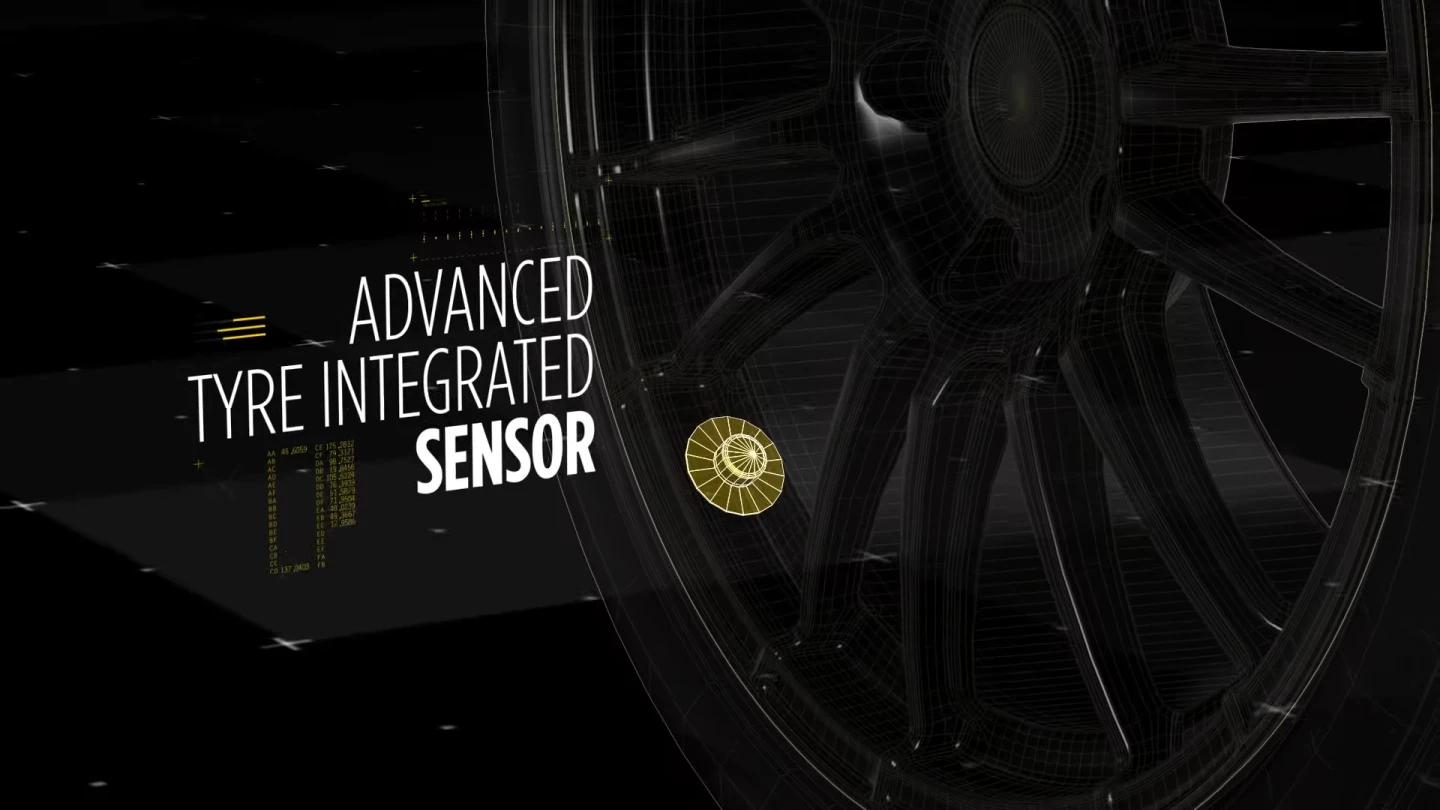
The partnership will leverage Bosch's experience in MEMS (Micro-Electro-Mechanical Systems) sensor technology and tire pressure sensors that use BLE (Bluetooth Low Energy) wireless communications technology, while Pirelli will contribute its experience in developing in-tire device hardware and software and tire modeling. It's believed that together, these capabilities will enable real-time tire data collection, processing, and very low-power transmission via BLE to the vehicle's electronic control system.
Pirelli and Bosch say the Cyber Tyre should also bring environmental benefits, as it should reduce tire wear, which plays a significant role in a car's overall environmental impact, primarily due to the release of microplastics and other pollutants into the environment.
The big question now is when this technology will reach passenger cars for widespread use, as Pirelli and Bosch haven't given a timeline for that. When they do arrive, Cyber Tyres are sure to be pricier than your standard set of shoes, but there are certain to be plenty willing to pay for an improvement in driving experience if the tires can deliver on their promise.
Source: Pirelli
